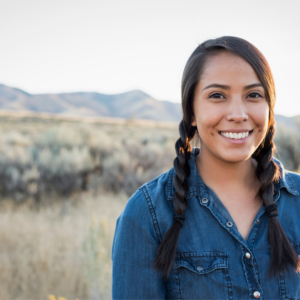If you’ve ever wondered about the contrast between traditional Native American medicine and modern healthcare, this article is here to shed light on the subject. By exploring the unique characteristics and approaches of traditional Native American medicine, we can gain a deeper understanding of how it stands apart from the practices of the modern world. From a holistic perspective that emphasizes the balance of mind, body, and spirit to the use of natural remedies derived from plants and herbs, traditional Native American medicine offers a fascinating alternative to the scientific advancements of contemporary healthcare. Join us on this journey as we delve into the rich history and philosophies that shape traditional Native American medicine and discover the profound differences that exist between these two distinct approaches to healing.

Background of Traditional Native American Medicine
Beliefs about Health and Illness
In Native American culture, health is viewed as a state of balance and harmony between the mind, body, and spirit. Illness, on the other hand, is seen as a result of disharmony or disruption in this balance. Traditional Native American medicine acknowledges that physical ailments are often interconnected with emotional, mental, and spiritual imbalances. Therefore, healing involves addressing all aspects of a person’s being.
Healing the Mind, Body, and Spirit
Traditional Native American medicine recognizes the interconnectedness of the mind, body, and spirit in the healing process. Healing methods focus not only on alleviating physical symptoms but also on promoting emotional well-being and spiritual growth. The goal is to restore harmony within the individual, which in turn contributes to overall well-being.
Connection to Nature and Spirits
Traditional Native American medicine emphasizes the deep connection between humans and the natural world. Indigenous healing practices often incorporate the use of plants, herbs, and natural remedies. The belief is that these plants possess spiritual and healing qualities, and their proper use will aid in restoring balance and promoting wellness. Additionally, Native American medicine acknowledges the presence of spirits who can assist in the healing process and act as intermediaries between humans and the natural world.
Principles and Philosophy of Traditional Native American Medicine
Holistic Approach to Health
Traditional Native American medicine takes a holistic approach to health, recognizing that all aspects of an individual’s life are interconnected. It emphasizes the integration of physical, emotional, mental, and spiritual aspects of health to promote overall well-being. This approach differs from the modern practices that often focus solely on treating physical symptoms without considering the underlying causes.
Balance and Harmony
The concept of balance and harmony is central to traditional Native American medicine. It is believed that imbalance and disharmony lead to disease and illness. Therefore, healing practices focus on restoring balance in all areas of life. This includes addressing physical ailments, emotional distress, mental imbalances, and spiritual disconnection.
Prevention rather than Cure
Traditional Native American medicine places significant emphasis on preventative measures to maintain health and prevent the onset of illness. Practices such as ceremonies, rituals, and daily lifestyle choices are geared toward maintaining a state of balance and harmony. By taking proactive steps to prevent disease, traditional Native American medicine differs from modern practices that often focus more on curative treatments.
Traditional Healing Methods and Techniques
Herbal Remedies
Herbal remedies play a significant role in traditional Native American medicine. Native American healers, often referred to as medicine men or women, possess extensive knowledge of the medicinal properties of various plants. These remedies are used to treat a wide range of ailments, including physical illnesses as well as psychological and spiritual distress.
Medicinal Plants
Native American healers have a deep understanding of medicinal plants and their healing properties. Medicinal plants are often gathered and prepared in specific ways to extract their beneficial qualities. This knowledge is passed down through generations and is an essential aspect of traditional Native American medicine.
Sweat Lodge Rituals
Sweat lodge rituals are an integral part of traditional Native American healing practices. These ceremonies involve entering a small enclosed space known as a sweat lodge, which represents the womb of Mother Earth. Participants engage in prayer, singing, and intense sweating, which is believed to purify the mind, body, and spirit and promote healing.
Ceremonies and Rituals
Ceremonies and rituals hold a significant place in traditional Native American medicine. These practices often involve the use of prayer, music, dance, and sacred objects to engage the spirit world and seek guidance and healing. Ceremonies can vary among different tribes and communities but are united in their aim to restore balance and connect with spiritual forces.
Dream Interpretation
Dreams are considered to be sacred in traditional Native American medicine. They are interpreted as messages from the spirit realm and are believed to provide insights into a person’s health and well-being. Native American healers possess the ability to interpret dreams and offer guidance based on these messages.
Role of Medicine Men and Women
Healers and Spiritual Leaders
Medicine men and women are highly respected individuals in Native American communities. They serve as healers, spiritual leaders, and cultural preservationists. As healing practitioners, they possess extensive knowledge of traditional healing practices and play a vital role in maintaining the health of their communities.
Intuitive Diagnosis and Treatment
Medicine men and women have a unique ability to diagnose illnesses and imbalances intuitively. Through observation, intuition, and consultation with spirits, they can identify the underlying causes of illness and formulate appropriate treatment plans. This intuitive approach differentiates traditional Native American medicine from the more analytical and scientific approach of modern healthcare.
Intermediaries with Spirits
Medicine men and women are believed to be intermediaries between the physical and spiritual worlds. Through prayer, ritual, and their connection to the spirit realm, they can seek guidance from spirits and channel their healing energies. This spiritual aspect of healing is fundamental in traditional Native American medicine.
Herbalist and Botanical Knowledge
In addition to their role as healers and spiritual leaders, medicine men and women possess extensive knowledge of medicinal plants and their healing properties. They understand the specific uses and preparation methods of various herbs and have the ability to combine them effectively to address specific ailments.

Integration of Mind, Body, and Spirit
Emphasis on Spiritual Well-being
Traditional Native American medicine recognizes the importance of spiritual well-being in maintaining overall health. It acknowledges that spirituality is a core aspect of a person’s identity and a source of strength and resilience. Healing practices often involve engaging in rituals, prayer, and meditation to nurture the spiritual aspect of well-being.
Rituals and Prayer
Rituals and prayer are integral to the healing process in traditional Native American medicine. These practices help individuals connect with the spirit realm, seek guidance, and actively participate in their healing journey. Rituals and prayer provide a sense of purpose, meaning, and connection, which contributes to overall well-being.
Meditation and Mindfulness
Meditation and mindfulness practices are embraced in traditional Native American medicine as a means of cultivating awareness and inner peace. These practices facilitate the integration of mind, body, and spirit and promote a sense of harmony and balance. By incorporating meditation and mindfulness, traditional Native American medicine differs from the more technologically driven and fast-paced modern practices.
Healing through Ceremony
Ceremonies hold significant healing power in traditional Native American medicine. Whether it is a sweat lodge ritual, a vision quest, or a powwow, ceremonies provide a sacred space for individuals to connect with their spirituality and seek healing. Ceremony-based healing rituals differ from modern practices that often rely on medical procedures and pharmaceutical interventions.
Traditional Native American Medicine and Modern Healthcare
Recognition of Traditional Healing Practices
In recent years, there has been an increasing recognition of the value and efficacy of traditional Native American healing practices within modern healthcare systems. Many medical professionals and researchers have acknowledged the holistic nature of traditional Native American medicine and its potential to complement Western medical approaches.
Collaboration and Integration
Efforts are underway to promote collaboration and integration between traditional Native American medicine and modern healthcare. This includes incorporating traditional healing practices into treatment plans and working closely with Native American healers as part of a multidisciplinary healthcare team. By integrating the strengths of both systems, a comprehensive approach to healing can be achieved.
Cultural Sensitivity in Healthcare
Recognition of traditional Native American medicine in modern healthcare requires cultural sensitivity and respect for indigenous practices. Healthcare providers need to be knowledgeable about the cultural beliefs, values, and healing practices of Native American communities to provide appropriate and effective care. This cultural sensitivity distinguishes traditional Native American medicine from the standardized approach of modern healthcare.
Incorporating Traditional Medicine in Treatment Plans
In certain cases, traditional Native American medicine is being incorporated alongside modern medical treatments to provide a more holistic approach to patient care. This integration recognizes the unique strengths of both systems and aims to provide comprehensive and individualized treatment plans that address the diverse needs of patients.

Challenges and Criticisms of Traditional Native American Medicine
Lack of Scientific Evidence
One of the criticisms of traditional Native American medicine is the perceived lack of scientific evidence to support its practices. Traditional healing methods often rely on anecdotal evidence and centuries-old knowledge passed down through generations. This has led to skepticism among some practitioners of modern medicine who adhere to evidence-based approaches.
Efficiency and Efficacy Concerns
Another challenge is the concern about the efficiency and efficacy of traditional Native American medicine in treating complex and acute medical conditions. While traditional healing practices have shown success in promoting overall well-being and treating certain ailments, some experts argue that their effectiveness may vary in addressing modern illnesses that require advanced medical interventions.
Integration into Western Healthcare Systems
The integration of traditional Native American medicine into Western healthcare systems poses challenges due to differences in philosophical foundations, treatment approaches, and cultural practices. Finding ways to bridge these gaps and create mutually beneficial partnerships is crucial for the successful integration of traditional healing practices.
Cultural Appropriation and Exploitation
Cultural appropriation and exploitation of traditional Native American medicine is a significant concern. The commercialization and commodification of indigenous healing practices without proper acknowledgment, respect, or benefit to Native American communities can perpetuate harmful stereotypes and undermine the integrity of these sacred traditions.
Preserving and Reviving Traditional Native American Medicine
Traditional Knowledge and Wisdom
Efforts are being made to preserve and revive traditional Native American medicine by documenting and sharing traditional knowledge and wisdom. This includes documenting healing practices, medicinal plant knowledge, and rituals, and ensuring that this information remains accessible for future generations.
Community-Based Healing
Community-based healing initiatives aim to foster the revitalization of traditional Native American medicine. These initiatives involve creating spaces for community members to come together, share knowledge, and facilitate healing through ceremonies, workshops, and educational programs.
Educational Programs and Initiatives
Educational programs and initiatives that promote traditional Native American medicine are being developed to train and educate future generations of healers. These programs focus on preserving cultural heritage, promoting traditional healing practices, and ensuring the continuation of indigenous healing wisdom.
Supporting Indigenous Healers
Supporting indigenous healers is essential in preserving traditional Native American medicine. Recognizing their role as cultural preservers and healers, efforts are being made to provide resources, funding, and platforms for indigenous healers to practice, teach, and share their knowledge in a way that benefits their communities.

Legal and Ethical Considerations
Protection of Traditional Knowledge
The protection of traditional knowledge is crucial to prevent its misappropriation and exploitation. Measures must be taken to safeguard the intellectual property rights of Native American healers and communities, ensuring that their traditional knowledge is used respectfully and with their consent.
Intellectual Property Rights
Intellectual property rights play a vital role in protecting traditional Native American medicine. Native American healers and communities should have the legal means to protect their traditional healing practices, medicinal plant knowledge, and rituals from unauthorized use or exploitation.
Informed Consent and Cultural Safety
Incorporating traditional Native American medicine into modern healthcare requires informed consent and cultural safety measures. Healthcare providers must obtain proper informed consent from patients and ensure that cultural practices are respected and honored throughout the healing process.
Respecting Indigenous Practices
Respecting indigenous practices is essential in recognizing the value and importance of traditional Native American medicine. This includes honoring cultural protocols, seeking permission before utilizing traditional knowledge, and providing fair compensation to healers and communities for the use of their sacred practices.
Conclusion
Traditional Native American medicine offers a unique and holistic approach to healing, emphasizing the interconnectedness of mind, body, and spirit. It highlights the importance of balance, harmony, and spiritual well-being in achieving optimal health. Despite the challenges and criticisms it faces, efforts are being made to preserve, revive, and integrate traditional Native American medicine into modern healthcare systems while respecting indigenous practices and safeguarding cultural heritage. By recognizing and embracing the wisdom and healing traditions of Native American communities, a more inclusive and comprehensive approach to healthcare can be achieved.



